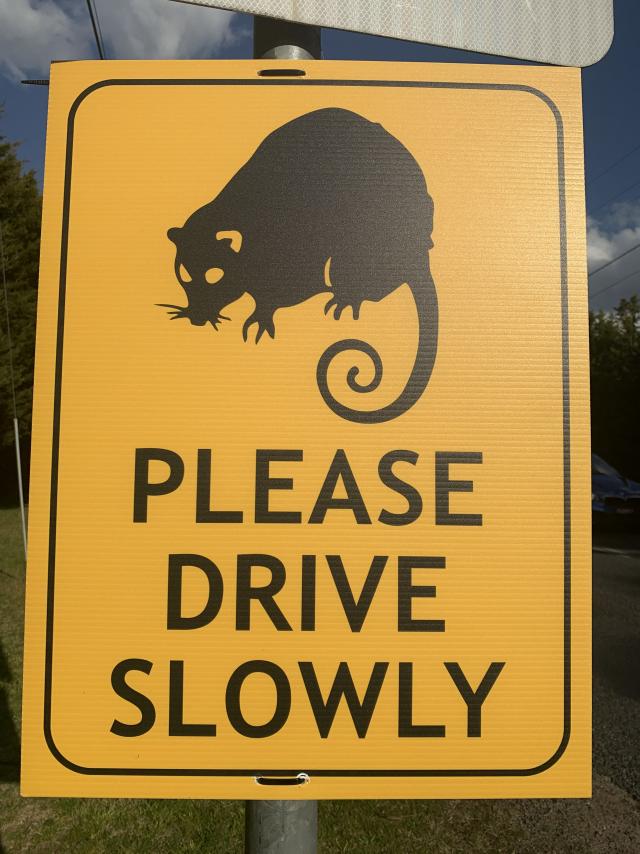Each year, thousands of native animals are killed or injured on Victoria’s roads.
Over a six-week period in the December 2021-January 2022 school holidays, Wildlife Victoria responded to 1,131 reports of wildlife injured or killed by vehicles.
Of those reports, over 60 percent were Eastern Grey Kangaroos and Swamp Wallabies.
The number of road-related accidents is increasing year-on-year with 663 calls in the same period in 2019-2020 and 559 calls in 2018-2019.
The impact caused to our wildlife by vehicles is evident with only five cases reported in 2020-2021, when state enforced travel restrictions were in place.
As Victorians prepare to hit the roads this holiday period, Wildlife Victoria shares some simple tips for keeping ourselves, and our wildlife, safe.
An effective way to reduce road-related wildlife accidents is to slow down.
Studies from the Centre for Automotive Safety Research conducted by the University of Adelaide have shown that a reduction in speed of just 10 percent has the potential to reduce vehicle crashes by 20 percent.
Try to avoid driving at dusk and dawn. Native animals are most active at these times, as well as throughout the night. If this is not an option, motorists should again reduce their speed, stay alert, and scan the road ahead so they have enough time to slow down and safely steer around any animals on or near the road.
If a motorist does hit an animal, when safe to do so, they should pull over and call Wildlife Victoria’s Emergency Response Service on 03 8400 7300.
This phone line is monitored by trained wildlife emergency response operators 24 hours a day, 7 days a week, 365 days a year.
The wildlife emergency response operator will advise the motorist on the next steps, which may include asking the driver to identify if the animal has a pouch.
This is important information, as particularly at this time of year, many of our kangaroos have pouchyoung.
Pouch joeys can survive for several days after their mother has passed so it is incredibly important for pouches to be checked as soon as possible.
Wildlife Victoria emergency response operators can advise callers on how to safely perform a pouch check, or dispatch wildlife rescuers in field to check pouches whenever necessary.
Last year on Christmas day, a motorist outside of Bendigo called Wildlife Victoria to report a deceased kangaroo on the side of the road.
A trained Wildlife Emergency Response Operator instructed the motorist on how to safely perform a marsupial pouch check and, to his surprise, he found a small joey still alive inside in its mother’s pouch. The lucky joey was taken into care by a Wildlife Victoria carer, and was later able to be released back into the wild.
In addition to its Emergency Response Service, Wildlife Victoria also has a free Travelling Vet Service (TVS) on call that can be dispatched to assess injured wildlife on site in the outer east of Melbourne.
The Travelling Vet Service is fully equipped to perform roadside assessments, triage and treatment which significantly reduces diagnostic time and animal suffering, and improves health outcomes for treatable wildlife.
The TVS also fulfills a critical role in supporting Wildlife Victoria volunteer wildlife rehabilitators, providing them with a comprehensive and free home visit veterinary service for wildlife in care.
Wildlife Victoria are currently fundraising to increase their Travelling Vet Service from one vehicle to three.
This increase will allow for additional regions of the state to be serviced, reduce first response times to wildlife emergencies, and fill a critical gap in round the clock wildlife treatment. Donations can be made at wildlifevictoria.org.au/donate







